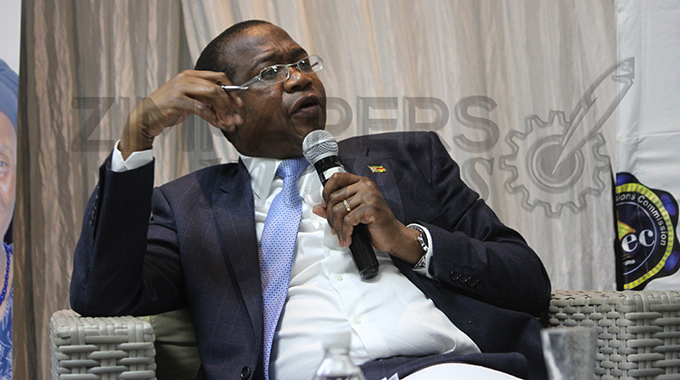Govt laments informalisation of economy

Ishemunyoro Chingwere Business Reporter
Government has expressed concern over a disturbing trend in which formal businesses are opting to go informal complicating calculation of their tax obligations. This is at a time the Zimbabwe Revenue Authority (Zimra) is seeking to widen the tax base and further shrink the budget deficit.
Zimbabwe, like many other developing economies the world over, is already grappling with an extended informal sector and Government has been working on a number of strategies to make these formal.
However, there is a reversal of past gains and the major reason for this has been noted to be business’ way of evading tax obligations and maximise profits.
The informalisation trend was revealed by Finance and Economic Development Deputy Minister Clemence Chiduwa at the 2020 Tax Review Breakfast meeting on Thursday last week.
“I was chatting to the CG (Zimra Commissioner General Faith Mazani) and she was telling me that the trend they are seeing these days is the deliberate informalisation of formal businesses,” said Deputy Minister Chiduwa.
The trend comes on the back of Government having this year budgeted for $58,6 billion in tax collections which it says will go a long way in cutting the undesirable budget deficit.
In its 2020 macro fiscal framework, Treasury is expecting a budget deficit of just 1,5 percent having pegged its projected expenditure of $63,6 billion. However, this could face an inflation hurdle that could further balloon spending.
Speaking at the same event, the Zimra boss said the trend was not only affecting small to medium indigenous businesses but straddling to bigger businesses.
In turn, the trend was affecting collections with the tax collector conceding that levying the informal sector comes with a number of challenges not withstanding a broad tax mix that Zimbabwe boasts of.
“You will appreciate that taxing the informal sector has been an area of interest for policy makers in most developing countries for some time and remains a challenge in Zimbabwe and for us as Zimra,” said Ms Mazani.
“. . . the tax burden should be borne by all engaged in economic activity whether formal or informal. If that burden is shared equitably, in relative terms, more resources are made available for economic development.
“As we address this issue, I would like to explain that Zimbabwe has a broad tax mix . . . such a balanced tax mix therefore ensures that more economic players contribute a reasonable share in Government’s income.
“Admittedly, there are challenges in tapping into the revenue from the informal sector. The main challenge in taxing this sector is the income earned in business transactions.
“The challenges in taxing the informal sector include the following: a complex tax system requiring the keeping of books and records, negative perception of taxation, lack of co-ordination and organisation within the sector, lack of infrastructure, macro and micro instability,” she said.
To stop the trend and to encourage voluntary compliance, Government is coming up with a number of intervention strategies.
To date, Deputy Minister Chiduwa said, Government has among other things, delayed the platinum concentrate export tax that should have kicked in as well as reviewed downwards the corporate tax rate from 25 percent to 24 percent starting this January.
Government has granted relief to a number of industries through rebate of duty in a bid to improve competitiveness of the local industry and in some cases eliminating customs duty and VAT on imported raw materials and capital equipment.










Comments